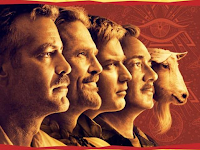Cyber => The word 'cyberspace' was coined by science-fiction writer William Gibson in his novel
Neuromancer and defined as 'consensual hallucination'. The term became to be applied to the 'room' or any space generated by software within a computer that produces a Virtual Reality (VR) experience.
More generally, cyberspace is the 'nowhere space' in the telephone line between you and where all things online happen. The artificial landscape on Internet or Compuserve, computer networks that connect millions of users throuhout the world, through which one can move, download information, talk to other users, visit special discussion forums, shop, make airline and hotel bookings, is cyberspace.
Virtual reality (VR) = compute-mediated, multisensory experience, one designed to trick our senses and convince us that we are 'in another world'.
In VR world, the computer takes complete control and guides the way of sensing, feeling and
thinking of participants.
So how did we end up here?
The beginning:
Computers --> cybernetics, binary system -->
binary opposites (Claude Levi-Strauss)
The 80s:
Cyberpunk began as a subgenre of science fiction popular in the late 80s. Cyberpunk represents the implosion of the future into the present and total intrusion of technology into human lives. Here iant corporations wield more power than governments, anarchistic computer hackers lead rebellions against them on thenew frontier of global networks,
Influential films:
- Terminator (1984) with Arnold Schwarzenegger
- Blue Velvet by David Lynch (1986)
- Robocop (1987)
- Twin Peaks (1989) - TV series
The 90s:
Hyperreality slowly becomes part of everyday life as PCs are widely used at home.
Virtual reality is a popular subject matter in cinema & philosophy.
Cyber is one of the most used prefixes of the 90s, signifying a world of computer dominance and disembodied experience.
Influential Films:
- Total Recall (1990)
- Sliders - Tv series
- The Matrix Trilogy
Today:
- YouTube
- Google
- Facebook has as many memers as the third largest country in the world. It has become a 'virtual home' for millions of people, where they have a chance to socialize, talk to friends and family, who are phisically in a great distance.
- Games
About the Future:
Reading:
- Ithiel de Sola Pool, Technologies of Freedom, 1983
- Peter Huber, Law and Disorder in Cyberspace: Abolish the FCC and Let Common Law Rule the Telecosm, 1997
- Henry Jenkins, Convergence Culture: Where Old and New Media Collide, 2006







.jpg)



















